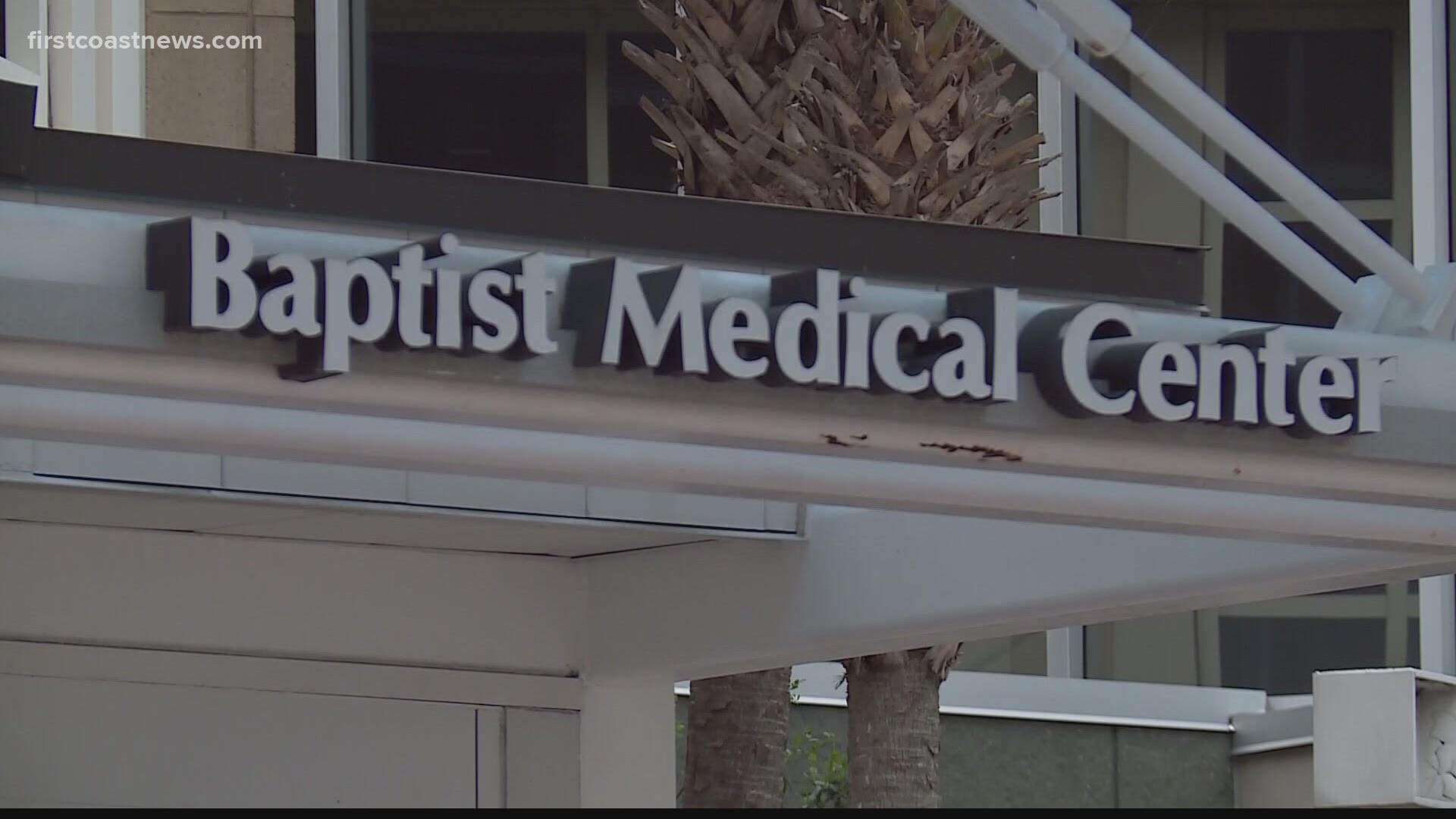As both Florida and Georgia reopen, coronavirus cases in both states have risen over the past week, according to data from Johns Hopkins University. Health care workers continue to fight the virus on the frontlines, but who is taking care of them?
“There are always a couple of people and a couple of patients that will stick out to me for the rest of my career, probably for the rest of my life because some victories we got to celebrate them leaving, and there were some we didn’t," Gabbie Stratiotis, a COVID-19 ICU nurse at Baptist Health, said.
That memory and the weight it carries are just some of the reasons why team members at Baptist Health created support services for its staff. These services started at the beginning of the pandemic. Like other hospitals across the First Coast, Baptist offered a 24/7 crisis hotline.
Baptist also offered support groups, Zoom chats about topics like stress, and what they called "Rest and Revive" tents, full of snacks, letters of support from the community and the opportunity to talk to psychologists and chaplains.
"We were fighting for these patients," Stratiotis said. "We were praying for them. We were leading whole team meetings and prayers over these people even when their families couldn't be there. I think kind of helped me cope."
Stratiotis and Spiritual Care Administrator Patti McElroy said there's also the added stress for the staff about possibly exposing family members to COVID-19.
"We had our own families to think about, so it was kind of dicey because a lot of us were trying to figure things out outside of the hospital like, 'do I go to the store? Do I go get my groceries,'" Stratiotis said.
McElroy said as the pandemic has evolved, so have the hospital's resources. A program called "Rekindle" replaced the Rest and Revive tents.
"We're going out for instance, the chaplains go out on a five-week basis," McElroy said. "They've created a different theme for every week so that when they go out onto the floors, they're taking a cart with them that might have tea. That's called tea for the soul. It might have other kinds of treats and goodies."
The hotline and other resources are still available.
"It's a time in which our chaplains were able to check in with the team to see how they're doing and to make sure everybody is doing ok," McElroy said.
Stratiotis said the programs and the support of her staff have helped her navigate through the pandemic.
”You realize it takes an army," she said. "They say it takes a village to raise a child. That’s kind of how it felt with our COVID patients who were there for a long time."
Both Stratiotis and McElroy warn we're not out of the woods yet.
"As just a general statement, I would just like to say it's not over yet," Stratiotis said. "We're going to be battling this for a while, so just walk in wisdom the best way that you can for you because that's going to look different for everyone."
If you or someone you know in the health field needs to talk to someone, there's also a national physician support line that's free and confidential. You can call 1-888-409-0141.

